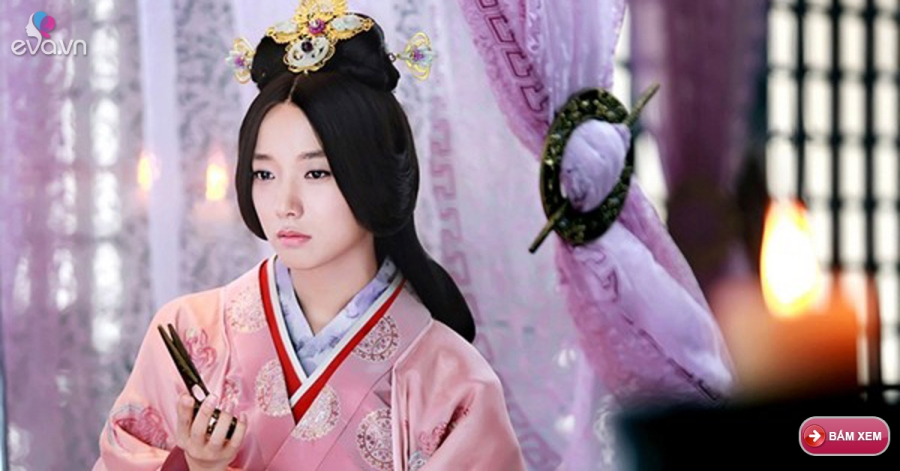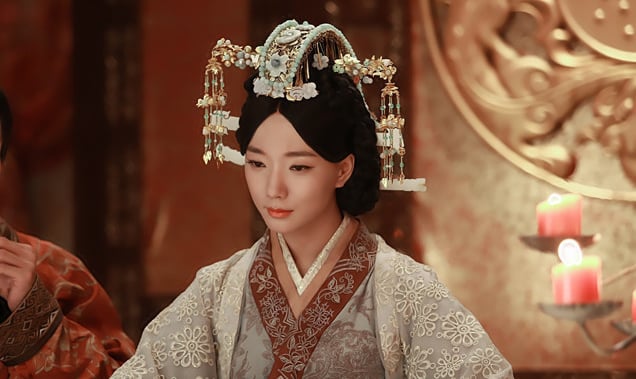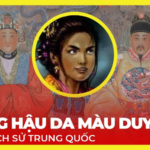The queen is the epitome of beauty and elegance, carefully chosen among the finest women in the kingdom. However, there is one exception, a consort from the opera house who became the queen of China like a fairy tale. Nevertheless, her life ended tragically, with a wrongful death on the street after being fallen out of favor by the emperor.
Becoming a queen like a fairy tale
In March 139 BC, Emperor Han Wu had just turned around 18 and came to his sister’s house in the northern part of Truong An City, after visiting the royal tombs. Princess Binh Duong held a banquet, with beautiful women singing and pouring wine for the emperor. Among them was Ve Tu Phu, who immediately captivated Emperor Han Wu at their first meeting. Shortly after, Emperor Han Wu pretended to change clothes to leave the banquet. The princess understood the hint and urged Ve Tu Phu to accompany him. Ve Tu Phu was favored by the emperor right in the changing room. Then, when leaving Binh Duong’s residence for the palace, Emperor Han Wu also brought her along.
At that time, Emperor Han Wu already had Queen Tran A Kieu. Knowing that the queen was jealous and not wanting to ruin the arranged marriage, Emperor Han Wu left Ve Tu Phu alone in the palace. During that time, Ve Tu Phu wanted to leave the palace and return to being a maid for Princess Binh Duong. When saying goodbye to Emperor Han Wu, Ve Tu Phu burst into tears, arousing the emperor’s affection and persuading her to stay in the palace.

Queen A Kieu was extremely angry and jealous, wanting to completely eliminate the immediate threat. A Kieu wanted to kill Ve Tu Phu’s whole family, but her plan was quickly exposed. Emperor Han Wu, aware of the situation, distanced himself from the queen, making Ve Tu Phu a concubine. Later, Ve Tu Phu gave birth to 3 daughters for the emperor. Queen A Kieu became increasingly mad and used dark magic to harm Ve Tu Phu. In 130 BC, A Kieu was “deposed for violating laws, practicing dark magic, and no longer deserving the title of queen”. Emperor Han Wu, in respect of their previous relationship, spared A Kieu’s life, but stripped her of all titles and kept her imprisoned in the palace until she died.
A year after Queen A Kieu was deposed, Ve Tu Phu gave birth to a prince named Liu Cu for the emperor. This served as a foundation for Emperor Han Wu to elevate Ve Tu Phu to the position of queen when she turned 28.
Everything seemed like a fairy tale for Ve Tu Phu. She became the rightful queen, with family members receiving many rewards, holding positions of power, or becoming military leaders of the Han dynasty.
A tragic and unjust death
Over time, as her beauty and novelty faded, Queen Ve Tu Phu began to fall out of favor. The emperor showered his affection on other young concubines. Emperor Han Wu also didn’t think that Prince Liu Cu deserved to inherit the throne due to his weakness. However, Ve Tu Phu still retained her position thanks to her modest and obedient nature, always carrying out her duties whenever the emperor was absent from the palace.

In old age, Emperor Han Wu, in his pursuit of pleasure, built many palaces and believed in superstitions. During that time, conflicts arose between Emperor Han Wu and Crown Prince Liu Cu, as well as external forces seeking to eliminate the Ve lineage. Misunderstanding his son’s intention as a plot to overthrow him, Emperor Han Wu became enraged and deposed the Crown Prince, ordering his capture.
After the Crown Prince’s death, Emperor Han Wu sent two high-ranking officials to confiscate the queen’s seal, strip the Ve family of all rewards. Ve Tu Phu had no way to explain, so she chose to commit suicide. The Ve family, once splendid during the Han dynasty, was completely wiped out. Chinese historical records note her as the longest-reigning queen in the history of the Han dynasty, reigning for 38 years, and the second longest-reigning queen in Chinese history.



































